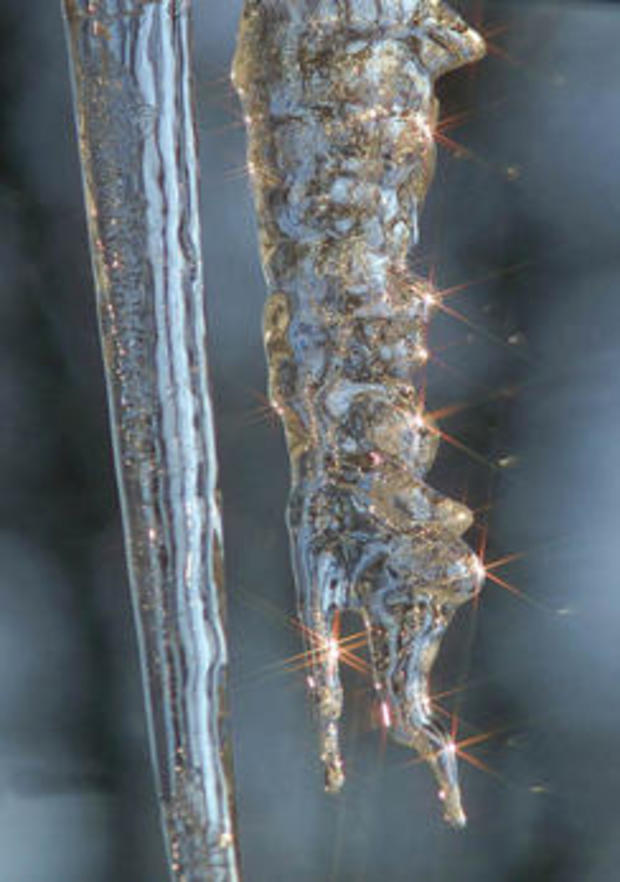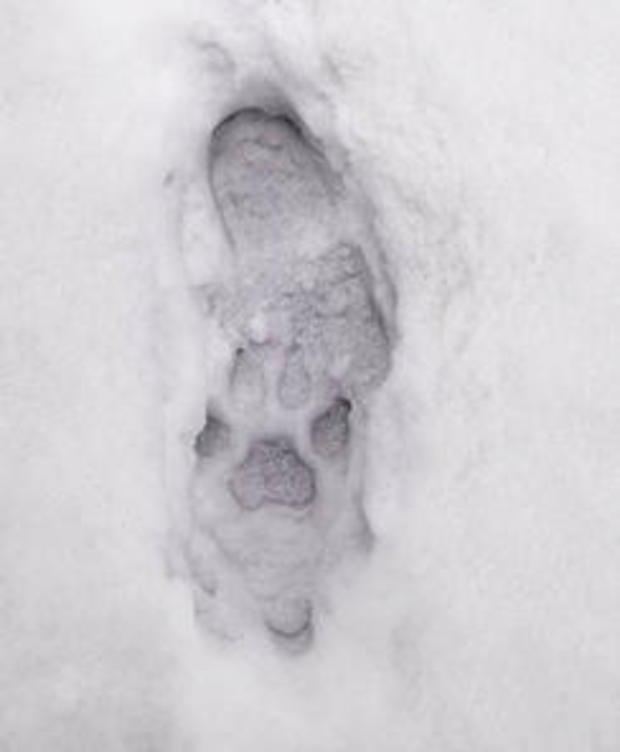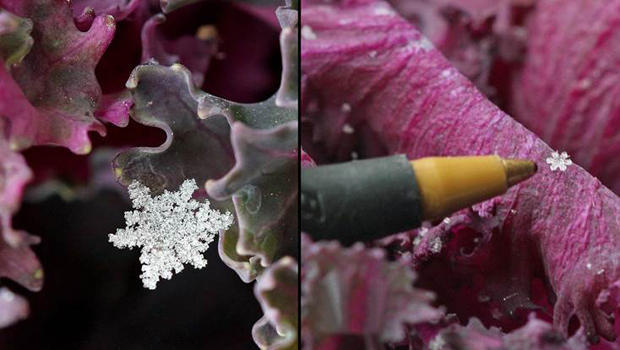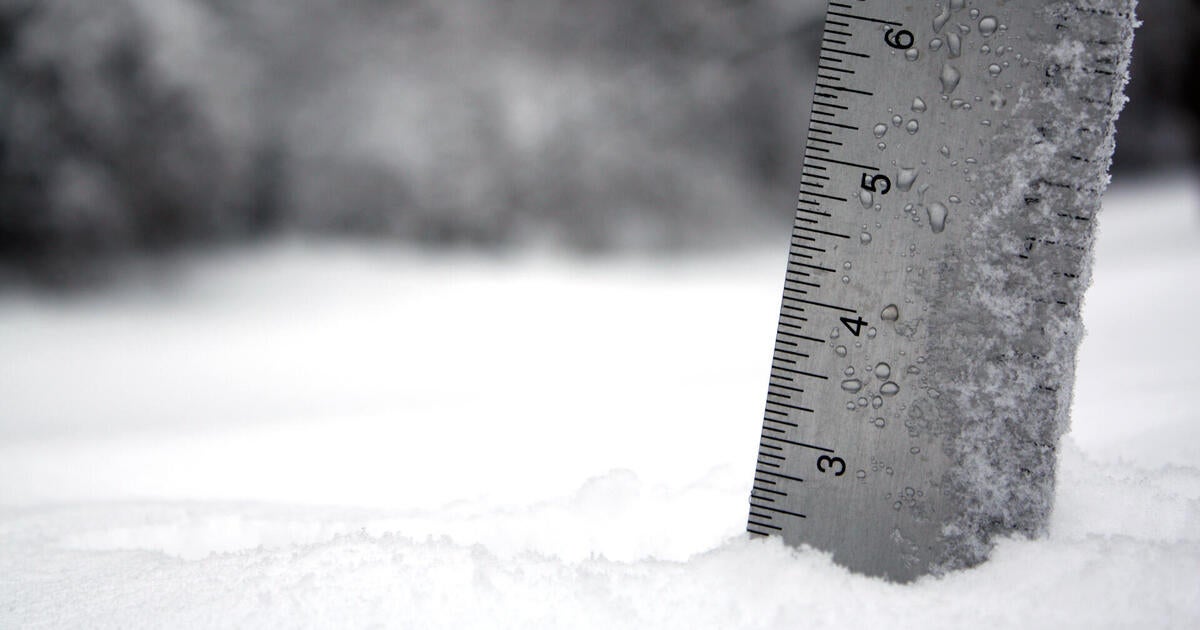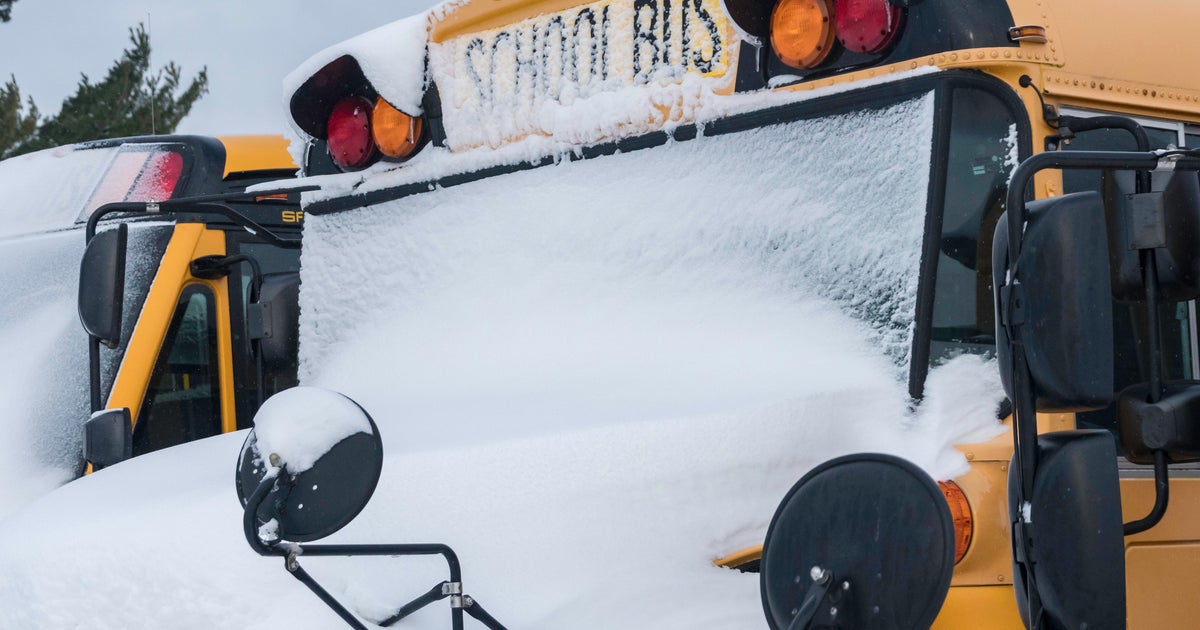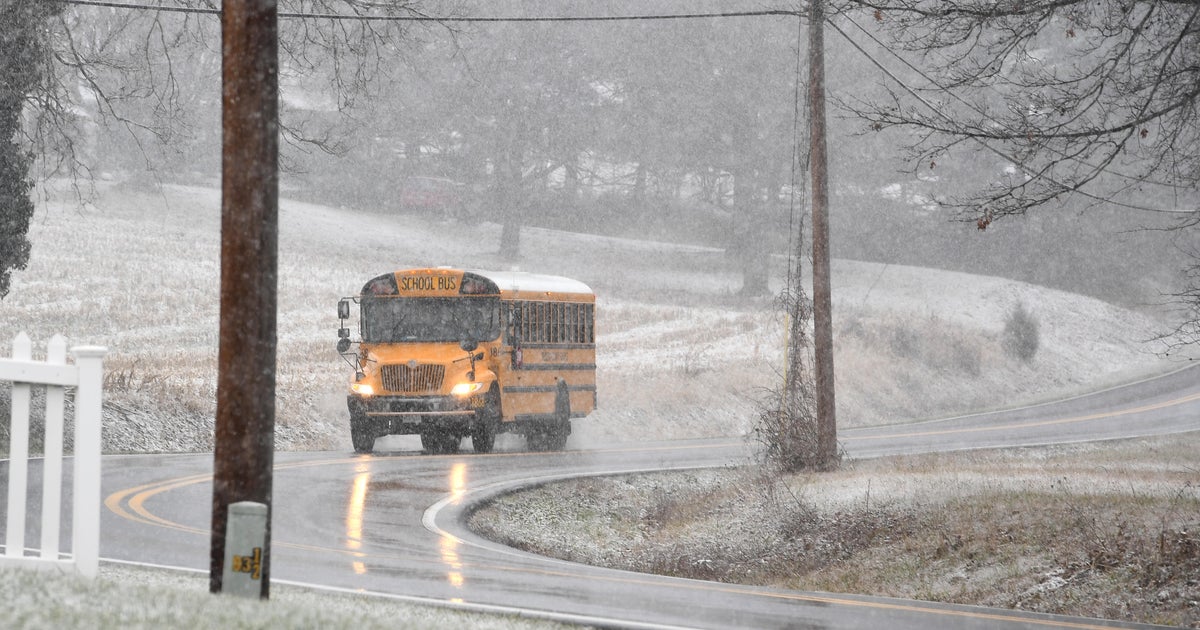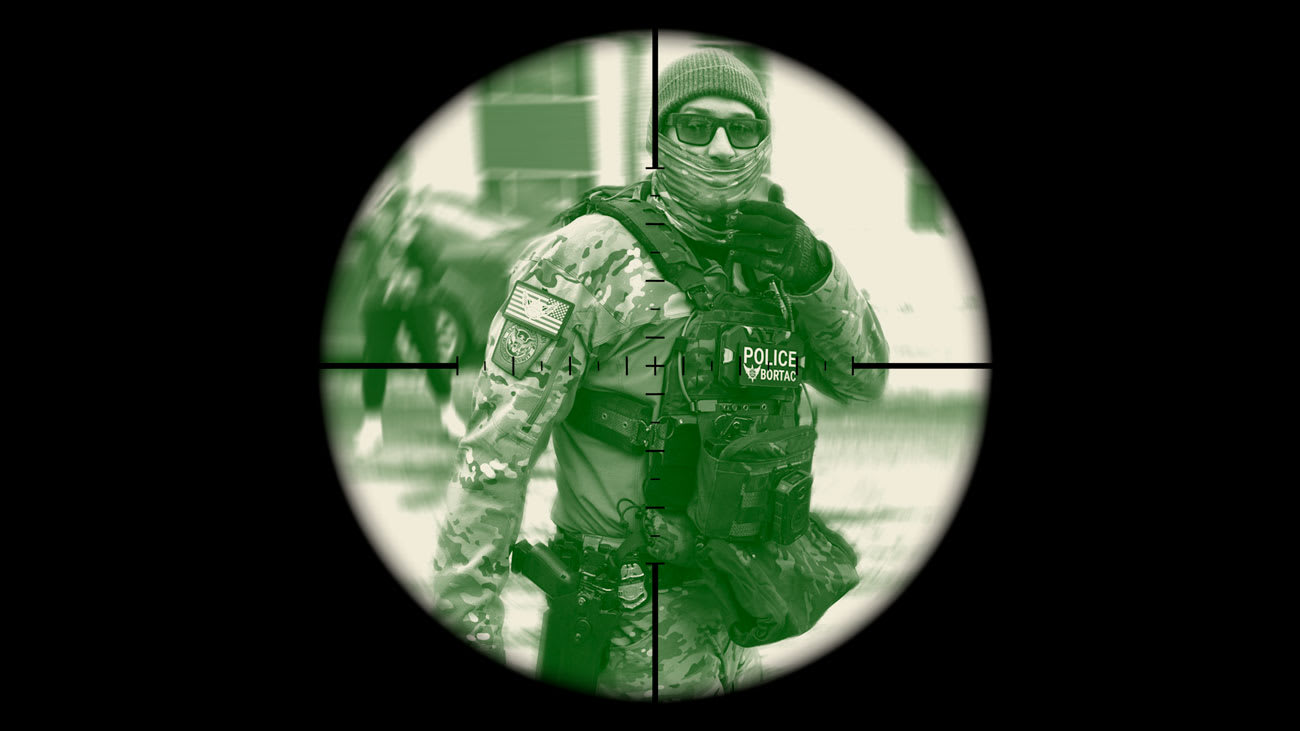Nature up close: Snow and ice
By “Sunday Morning” contributing videographer Judy Lehmberg.
We are approaching the end of February, and I can see trees leafing out and coral honeysuckle blooming. I just watched two red-shouldered hawks mating, but then I live in southeast Texas, where winter (especially in the last 10 or 15 years) is more of a brief visit than a season.
I guess that’s why I love snow and ice. They are a novelty much like Eben Ice Cave, located in Hiawatha National Forest in Michigan’s Upper Peninsula.
Eben Ice “Cave” forms in Rock River Canyon only in the winter when a waterfall and ground water seeps over the side of the eroded sandstone canyon edges. The ice forms a wall which visitors can walk behind to get a feeling they are in a cave. The frozen waterfall is about 40 feet high.
I live in Texas but my mother was raised in Iowa. If we were lucky enough to get a snow day while growing up in Fort Worth, she made sure we bundled up and went out to play in it. My brother and sister and I made snowmen and our mom taught us how to make snow angels. Making an angel was easy; lie down on the snow and wave your arms. The tough part was getting up without ruining the angel. We used to have contests and arguments over the best one. She also taught us how to made snow candy; pour boiled maple syrup into the snow, wait a little while for it to cool, and you have snow candy. It was way too sweet, but fun.
Not only is snow beautiful, it can also tell wonderful stories. This is where an owl swooped down and caught a vole under the snow, its wings outlined in the snow like the snow angels we made as kids. Look over here -- a fox plunged head-first into the snow hunting for its prey. A moose walked through this area on its way to try to find something green to eat. Oh! Here is a bear print. I thought they were still hibernating.
I have a friend who sent me a photo yesterday. The day before she had hiked out in the snow looking for something to photograph. Yesterday she did the same thing in the same place.
As she walked, she looked down and noticed wolf prints. A wolf had used her trail to get through the deep snow and had even stepped on her prints. I was really jealous! It’s super cool to see wolf prints, but wolf prints in your prints? That is fantastic!
Although I do love snow and icicles I hadn’t given much thought to how they form until a friend, Sherri O’Brien, started photographing individual snow crystals a few years ago, with beautiful results.
We’ve all heard that no two snowflakes are alike. That is likely true, because the average snowflake is made up of 10 19 (10 quintillion) water molecules. A snowflake begins to take shape when water molecules near freezing temperatures contact an extremely small speck of dust to form an “ice nucleus.” This ice nucleus attracts other water molecules, eventually forming an ice crystal of varying size. As the ice crystal grows it gets heavier and begins falling, sometimes running into other ice crystals so the flakes can sometimes be large. If you are lucky enough to find tiny, individual snowflakes, they will always have six points, because ice crystals always have six points.
Weather conditions have to be just right for icicles to form. They normally form following a snowstorm during a day when the temperature is below freezing but is bright and sunny. The sun melts some of the snow and as it drips off rocks, trees, and roofs it refreezes. The longer conditions remain favorable, the larger the icicles become. They can also form during ice storms when rain is falling and the air temperature is just below freezing. The ice “waterfall” in Rock River Canyon forms when water seeps out as snow is melting above the canyon walls.
I guess anyone who lives in Northern climates probably gets pretty sick of snow and ice, but this Southerner will never get tired of them.
Judy Lehmberg is a former college biology teacher who now shoots nature videos.
For more info:
- Judy Lehmberg (Official site)
- Judy Lehmberg’s YouTube Channel
To watch extended “Sunday Morning” Nature videos click here!
